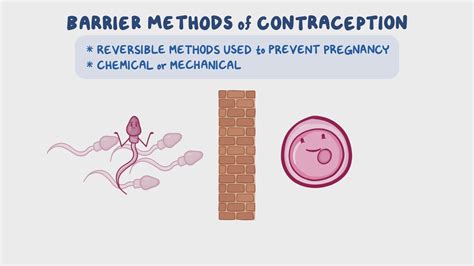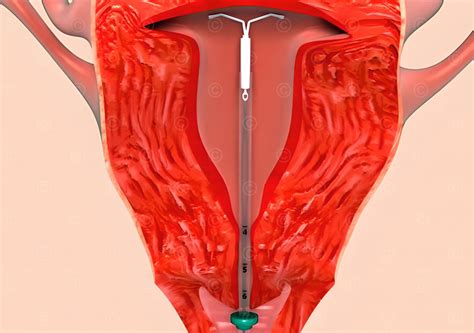Intro
Discover various birth control methods, including hormonal and non-hormonal types, such as pills, IUDs, and condoms, to find the best contraceptive option for your reproductive health needs.
The topic of birth control is a highly discussed and debated subject, with various methods and options available to individuals and couples. Birth control, also known as contraception, is used to prevent pregnancy and is a crucial aspect of family planning and reproductive health. With so many different kinds of birth control available, it can be overwhelming to navigate the various options and choose the best method for one's needs.
The importance of birth control cannot be overstated, as it allows individuals to take control of their reproductive health and make informed decisions about their bodies. Birth control methods can also help prevent unintended pregnancies, reduce the risk of sexually transmitted infections (STIs), and alleviate symptoms associated with menstruation, such as cramps and heavy bleeding. Furthermore, birth control can have a significant impact on a person's quality of life, allowing them to pursue education, career goals, and personal aspirations without the burden of an unplanned pregnancy.
As the demand for birth control continues to grow, the development of new and innovative methods has expanded the range of options available. From hormonal contraceptives to barrier methods, there are numerous types of birth control to suit different lifestyles, preferences, and health needs. In this article, we will delve into the various kinds of birth control, exploring their benefits, drawbacks, and effectiveness, as well as providing practical guidance on how to choose the best method for individual needs.
Introduction to Birth Control Methods

Birth control methods can be broadly categorized into several groups, including hormonal contraceptives, barrier methods, intrauterine devices (IUDs), and natural family planning. Each method has its unique characteristics, advantages, and disadvantages, which will be discussed in detail below. Understanding the different types of birth control is essential for making informed decisions and selecting the most suitable method for one's reproductive health needs.
Hormonal Contraceptives

Hormonal contraceptives are a popular choice for birth control, as they are highly effective and convenient to use. These methods work by introducing hormones into the body, which prevent ovulation, thicken cervical mucus, and thin the uterine lining. The most common types of hormonal contraceptives include:
- Birth control pills: These are oral medications that contain estrogen and progestin, which are taken daily to prevent pregnancy.
- Patch: A transdermal patch that releases hormones through the skin, which is applied weekly for three weeks.
- Ring: A vaginal ring that releases hormones, which is inserted into the vagina for three weeks and then removed for one week.
- Injection: A quarterly injection of hormones, such as Depo-Provera, which is administered by a healthcare provider.
Benefits and Drawbacks of Hormonal Contraceptives
The benefits of hormonal contraceptives include:
- High effectiveness in preventing pregnancy
- Regulation of menstrual cycles
- Reduction of menstrual cramps and heavy bleeding
- Improvement of acne and other skin conditions
However, hormonal contraceptives also have some drawbacks:
- Potential side effects, such as nausea, breast tenderness, and mood changes
- Increased risk of blood clots and stroke
- Potential impact on libido and sexual desire
- Requirement for regular dosing and adherence to maintain effectiveness
Barrier Methods

Barrier methods are designed to prevent sperm from reaching the egg, thereby preventing fertilization. These methods include:
- Condoms: Latex or polyurethane sheaths that fit over the penis or are inserted into the vagina to catch sperm.
- Diaphragm: A dome-shaped device that is inserted into the vagina to cover the cervix and prevent sperm from entering the uterus.
- Cervical cap: A small, thimble-shaped device that fits over the cervix to prevent sperm from entering the uterus.
- Spermicides: Chemicals that are applied to the vagina or cervix to kill sperm.
Benefits and Drawbacks of Barrier Methods
The benefits of barrier methods include:
- Protection against STIs
- Easy to use and accessible
- No hormonal side effects
- Can be used on demand
However, barrier methods also have some drawbacks:
- Lower effectiveness compared to hormonal contraceptives
- May cause skin irritation or allergic reactions
- Can be messy or uncomfortable to use
- Require proper use and technique to maintain effectiveness
Intrauterine Devices (IUDs)

IUDs are small, T-shaped devices that are inserted into the uterus to prevent pregnancy. There are two types of IUDs: hormonal and copper. Hormonal IUDs, such as Mirena, release progestin to thin the uterine lining and prevent implantation. Copper IUDs, such as ParaGard, work by causing an inflammatory response that is toxic to sperm.
Benefits and Drawbacks of IUDs
The benefits of IUDs include:
- High effectiveness in preventing pregnancy
- Long-acting and reversible
- Low maintenance and easy to use
- Can reduce menstrual cramps and heavy bleeding
However, IUDs also have some drawbacks:
- Potential side effects, such as cramping and spotting
- May cause heavier or irregular menstrual bleeding
- Requires a healthcare provider for insertion and removal
- Can be expensive, although costs may be covered by insurance
Natural Family Planning

Natural family planning (NFP) involves tracking the menstrual cycle and fertility signs to determine when ovulation is likely to occur. This method requires careful observation and recording of bodily changes, such as basal body temperature, cervical mucus, and menstrual cycle length.
Benefits and Drawbacks of NFP
The benefits of NFP include:
- No hormonal side effects or medical interventions
- Increased awareness and understanding of reproductive health
- Can be used to achieve or prevent pregnancy
- Low cost and accessible
However, NFP also has some drawbacks:
- Requires significant time and effort to track fertility signs
- May be less effective than other birth control methods
- Can be affected by stress, travel, or other lifestyle factors
- Requires commitment and discipline to maintain effectiveness
In conclusion, the various kinds of birth control offer a range of options for individuals and couples to take control of their reproductive health. By understanding the benefits, drawbacks, and effectiveness of each method, individuals can make informed decisions and choose the best birth control for their unique needs and circumstances.
What is the most effective method of birth control?
+The most effective method of birth control is the intrauterine device (IUD), which has a failure rate of less than 1%. Hormonal contraceptives, such as birth control pills and the patch, are also highly effective, with a failure rate of around 0.1-0.3%.
Can I use multiple birth control methods at the same time?
+Yes, it is possible to use multiple birth control methods at the same time. In fact, using a combination of methods, such as a hormonal contraceptive and a barrier method, can provide additional protection against pregnancy and STIs.
How do I choose the best birth control method for me?
+Choosing the best birth control method involves considering your individual needs and circumstances, such as your age, health, lifestyle, and personal preferences. It is recommended to consult with a healthcare provider to discuss your options and determine the most suitable method for you.
We hope this article has provided you with a comprehensive understanding of the different kinds of birth control available. If you have any further questions or would like to share your experiences with birth control, please feel free to comment below. Additionally, if you found this article informative and helpful, please consider sharing it with others who may benefit from this information. By taking control of our reproductive health and making informed decisions, we can empower ourselves and others to live healthier, happier lives.
